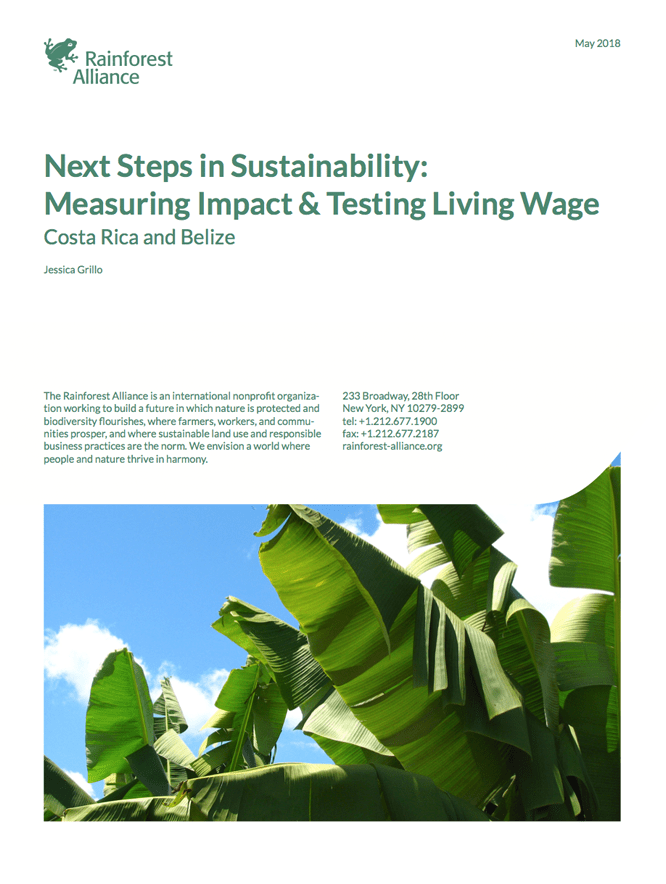Next Steps in Sustainability: Measuring Impact & Testing Living Wage
Bananas as a commodity have a tumultuous history, particularly when it comes to labor practices and environmental degradation. While there have been many improvements over the last few decades, trade unions and NGOs continue to report concerns, including that low wages on plantations are insufficient for workers and their families to achieve a decent standard of living. While the wage situation is not unique to the banana sector, nor to Costa Rica and Belize, project partners nonetheless recognize the importance of decent wages to the health of communities and banana supply chains.
For this reason, Fyffes, IDH The Sustainable Trade Initiative, other private entities, and the Rainforest Alliance have come together to finance and support the living wage estimates for Costa Rica and Belize, to understand the gaps between living wages and current wages, and to work with participating farms to develop monitoring tools and pilot strategies and plans for improving worker compensation.
Together with the Global Living Wage Coalition, and with critical input from banana sector representatives, including CORBANA, plantations, and worker organizations, we are working to finalize two living wage benchmarks—one each for Costa Rica and Belize. The benchmarks will cover regions of each country respectively where the majority of banana production is found. It is our intention that these benchmarks will serve as useful tools for workers and plantation managers/owners alike, along with facilitating dialogue on wages and shared value in the banana sector and beyond. The validation event for the Costa Rica benchmark was held in September 2017 and the final version of the study will be released by summer of 2018. The Belize living wage benchmark study is currently underway.
Eight pilot farms—four in each country—have volunteered to work with the project partners to better understand how their wages compare to living wage benchmarks, and together address wage gaps if and where they exist. Discussions between farms and project partners have already gone a long way toward helping all sides understand the complexity of compensation models and helping stakeholders develop better tools for facilitating dialogue on shared value. These farms are also providing critical feedback to the Rainforest Alliance which will help with learning and adaptive management on living wage criteria, training, and guidance within its certification system, landscape-level programs, and advocacy work. The Rainforest Alliance Sustainable Agriculture Standard has included living wage in its sustainability standard since 2017.
